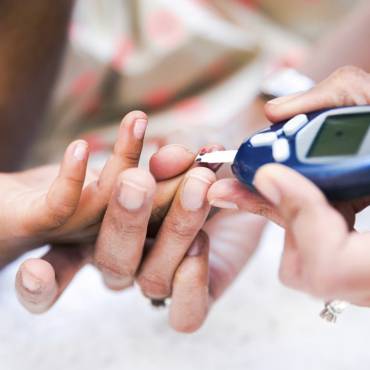Healthy living is the best way to manage diabetes mellitus. Also, medicine for diabetic patients plays a role in reducing severely high blood sugar levels. This blog helps you take care of your diabetes by providing tips for healthy living with diabetes over the long term, so that you can avoid or delay associated complications.
Diabetes Management
Millions of adults were diagnosed with diabetes over the past 3 decades in the USA. This issue has become of grave importance as type 2 diabetes can be genetic and/or a result of an unhealthy lifestyle. During the Initial stage of diagnosis of type 2 diabetes, it is highly likely for patients to dwell on morbid thoughts and obliterate the crucial changes that they are about to encounter in their physical and mental health condition. Intensive research led by the world’s most credible institutions has led to the discovery of effective medicines for diabetic patients that can help them live longer and healthier than before.
Daily objections to eating habits can lead to a feeling of despair in some cases, which ultimately results in a worse health condition. While fighting type 2 diabetes, it is important to keep in mind that a diligent type 2 diabetes diet and diabetes lifestyle choices can enable you to overcome the depression and help you to sculpt your daily routine to gain consistency in your health. Treat this illness as an opportunity to build your health because you are not alone!
Your healthcare specialist will help you; every day, diabetes care is up to you. The following steps can help take care of your diabetes in positive ways:
- Diabetes and lifestyle
Making lifestyle changes for diabetes can be hard, but initiating with small changes and building from there may be beneficial to your health. You may take help from family, friends, and other people in your community. You can also receive information from your healthcare provider. Healthy living with diabetes may help keep your body’s cholesterol, blood pressure, and glucose levels in the normal range. Healthy living also helps prevent or delay health conditions associated with diabetes, which have a direct impact on the eyes, kidneys, brain, heart, and other parts of your body. Plan the best practices and incorporate them into your lifestyle to experience the desired results.
- Exercising: Short high-intensity workout
There is no need to overexert yourself on your body, especially after a type 2 diabetes diagnosis. It’s essential to maintain a healthy body weight while being mindful of fatigue. Instead, it is possible to burn calories by training in short intervals. You can engage in many wholesome activities, such as swimming, dancing, or long hikes. Another extensively endorsed activity is weight training, along with the four-minute calorie-burning regime called the Tabata. Both activities are short and can be practised between your daily tasks. More importantly, it is highly recommended to be part of activities that bring you joy.
- Eating right: Follow a proper diet
After being diagnosed with type 2 diabetes, it is advisable to consult a nutritionist regarding your daily food habits. It is necessary to follow the diabetes diet plan to hasten the process of releasing yourself from the diabetes symptoms. An appropriate diabetes II diet plan that contains food types that fight diabetes can often eliminate the need for medicine for diabetic patients.
There is no right or wrong way to select healthy foods and beverages that help to manage your diabetes. Healthy meal plans for diabetics may include dairy or plant-based dairy products, nonstarchy vegetables, fruits, whole grains, and protein foods. Choose foods that include nutrients like calcium, fibre, vitamins, and healthy fats. Go for beverages with little or no added sugar, such as low-fat or non-fat milk, tap or bottled water, and unsweetened coffee, tea, or sparkling water. Have meals and snacks that have fewer:
-
- Food high in sodium (a mineral present in salt)
- Food high in saturated fat
- Sugary foods include cookies, cakes, sweetened drinks, juice, soda, sports drinks, and flavoured coffee.
- You should also limit alcohol intake. If you take insulin or certain diabetes medicines, alcohol consumption may cause a drop in your blood glucose level, which is called hypoglycaemia.

- Strength training:
Once you have already begun the battle against diabetes, it is time to incorporate weights in your daily workout regimen. Through weight training, you will develop muscle and replace fat. This displacement of fat with muscle will result in better bowel functions and regulate digestion, which will naturally modulate your blood sugar levels.
- Stretch to success:
To combat Type II diabetes with fitness, it is essential to exercise regularly and incorporate stretching exercises into your daily routine, which promotes continued fitness. Stretching makes the body more limber and flexible, which helps prevent a diabetic patient from becoming lazy. Stretching also keeps the limbs from cramping after intensive workouts. It helps keep the body in motion and maintains fitness, thereby preparing it for the future.
- Maintain a Journal:
The initial engagement with managing type II diabetes can overwhelm anyone. Therefore, it is of foremost significance to maintain a daily log of your activities. This journal will help you understand your daily routine and identify any gaps or inefficiencies in it. By keeping a record of the food and medicines consumed, it is easier to track improvements in health. This will also make it possible for you to assign different kinds of food to different days of the week, thereby creating variety in your weekly menu. Utilise the glucose monitoring gadgets available in the market to create a daily log of your blood sugar levels before and after meals.
Conclusion
If you have diabetes, then your loved ones are at risk of developing the condition too. Help them prevent this metabolic disorder by encouraging a healthy diabetes lifestyle. The American Diabetes Association offers many resources to help you learn proper management and prevention of diabetes.
The battle against type II diabetes is a long journey, but if followed diligently, it will seem shorter. Being physically active can help maintain a feeling of euphoria and prevent you from succumbing to temporary disappointment. Eating the right foods will help sustain the initial shock of diabetes symptoms, and by continuing a healthy diet, the patient will soon notice significant improvements in health. Motivate yourself daily by drawing inspiration and support from friends and family. In the end, believe in yourself. After all, it is now possible to live healthily ever after.



